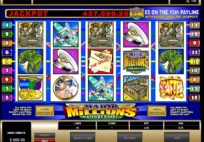
There are reportedly only three American casino operators that currently have enough financial clout to purchase the entirety of Caesars Entertainment Corporation while any other such interested local parties would only be able to acquire the available firm after conducting a reverse merger for stock.
Corporate change:
According to a report from GGRAsia, this is the opinion of the Asian branch of global brokerage firm, Sanford C Bernstein and Company, following recent moves that have seen billionaire investor, Carl Icahn (pictured), become Caesars Entertainment Corporation’s largest shareholder and name a trio of new change-focused directors to its board.
Investor intent:
Caesars is responsible for over 30 American casinos including seven in its home city of Las Vegas but has seen the value of its shares decline by around 30% over the course of the past year. This sharp deterioration has led 83-year-old Icahn to begin pushing for the firm to be sold or merged with a rival operator so that it may be better able to fulfill its potential.
Capable trio:
Sanford C Bernstein and Company analysts, Eunice Lee, Vitaly Umansky and Kelsey Zhu reportedly used a Tuesday note to declare that while Wynn Resorts Limited and MGM Resorts International have sufficient assets to purchase Caesars Entertainment outright, only Las Vegas Sands Corporation could conduct such an exercise using just cash.
Share dependence:
The team moreover explained that other American casino operators such as Eldorado Resorts Incorporated and Penn National Gaming Incorporated could only purchase select assets of Caesars Entertainment Corporation using cash with any larger move due to rely almost entirely on stock deals.
Reportedly read the analysts’ investigation…
“There could be cash funding created via asset sales but a large portion of Caesars Entertainment Corporation’s asset base has already been sold. While a potential buyout may result in acquisition at a premium to the current share price, albeit likely in the form of new stock, failure to find a transaction could easily lead to a collapse in shareholder interest and a drop in the price. With limited long-only interest, the value dislocation could last for some time.”



























